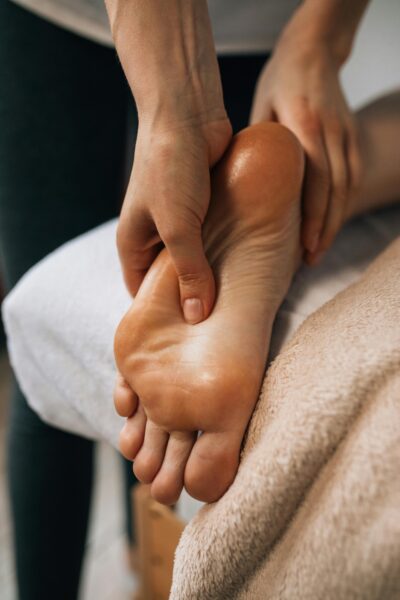
This article is from Momentous Supplements.
Collagen research has exploded over the last 10 years. In early iterations, collagen supplementation was identified as a strong proponent for healthy growth of hair, skin, and fingernails. New studies show that collagen is also a vital component for soft tissue development in joints and ligaments. But while the benefits of collagen continue to be expanded upon, there is new data that suggests we could be taking it all wrong. But before we jump into the research around caffeine and collagen, it’s important to understand what collagen is and how it works in the body.
What Does Collagen Do?
Collagen provides structural support to connective tissues thanks to its strength and resistance to stretching. There are 28 distinct types of collagen, but the most common are types I, II, and III, which make up 80–90% of the collagen in the body.
- Type I: Skin, tendon, bone, ligaments, teeth and interstitial tissues
- Type II: Cartilage, vitreous fluid (in the eyes)
- Type III: Skin, muscle, blood vessels
As early as your mid-20s and 30s, your body begins to lose collagen. Over time, you can lose up to 1% of your body’s collagen stores annually, making supplementation essential to maintain healthy tissues.
Timing Is Key
Collagen supplementation is best used before engaging in a moderate to high intensity activity. For active individuals and athletes, using a collagen supplement 60 minutes before activity can help increase both the strength and amount of collagen produced naturally in the body. Initial data from new research goes as far as to suggest a 200% increase in collagen synthesis when taken before a workout.
Yet, both timing and its most common delivery system present a problem for collagen supplementation: Caffeine.
Collagen and Coffee? Maybe Not
If you’ve taken collagen supplements, you know that one of the challenges can be mixing it effectively. One of the solutions to this problem has traditionally been to mix your collagen with coffee or tea. The thinking is that the warm liquid helps to dissolve the powder and aid absorption.
While that may be true, using coffee, tea, or a caffeinated drink pre-workout could actually be limiting your collagen synthesis and inhibiting the overall effectiveness of supplementation. As a matter of fact, studies show that taking it with caffeine could actually decrease synthesis by up to 92%.
How? Caffeine suppresses collagen production by preventing cell growth and interfering with the development of cartilage. In turn, this affects the ability to make new collagen and the genes involved in maturing cartilage cells.
The Studies
- One study found that caffeine reduces collagen synthesis in human skin. It showed that exposing the most common type of cell found in connective tissue to different concentrations of caffeine led to up to 92% less of the protein being produced. Less collagen could lead to dryer skin, more wrinkles, and more visible signs of ageing.
- Another study suggested that caffeine may even slow wound healing. Researchers found that caffeine restricted cell proliferation, suggesting that it may inhibit wound healing and skin growth over the wound. Collagen helps promote cell proliferation, and thus the inhibited production of collagen by caffeine may slow healing of cuts or scrapes.
- Research also shows that caffeine could interfere with cartilage and bone growth. Results demonstrate that caffeine can interfere with cartilage growth by inhibiting the synthetic activity and orderly expression of marker genes needed for cartilage cell development. Less cartilage and bone growth is a recipe for long-term injury and significant interruptions in training.
If you’re taking collagen for its host of positive effects, it makes sense to get the most benefit possible. But that doesn’t mean you have to change your morning routine completely.
Alternatives
- Add collagen to your PM routine – Add your collagen to an evening cup of caffeine-free herbal tea to reap the benefits before you go to bed.
- Change up your pre-workout – Look for a pre-workout that doesn’t contain any caffeine if you want to take collagen before exercise (which is the best time to take it).
- Wait a few hours – If going caffeine-free in the morning or before workouts seems impossible, wait a few hours post-caffeine before taking collagen to achieve effectiveness.
While there are many benefits to taking collagen, it’s essential to be aware of how it can interact with other supplements, like caffeine. By understanding the science, you can make sure you’re getting the most out of your collagen supplementation.
1 Przylipiak, A., Donejko, M., Rysiak, E., Gluszuk, K., & Surażyński, A. (2014). Influence of caffeine and hyaluronic acid on collagen biosynthesis in human skin fibroblasts. In Drug Design, Development and Therapy (p. 1923). Informa UK Limited. https://doi.org/10.2147/dddt.s69791
2 Ojeh, N., Stojadinovic, O., Pastar, I., Sawaya, A., Yin, N., & Tomic-Canic, M. (2014). The effects of caffeine on wound healing. In International Wound Journal (Vol. 13, Issue 5, pp. 605–613). Wiley. https://doi.org/10.1111/iwj.12327
3 Choi, H., Choi, Y., Kim, J., Bae, J., & Roh, J. (2016). Longitudinal bone growth is impaired by direct involvement of caffeine with chondrocyte differentiation in the growth plate. In Journal of Anatomy (Vol. 230, Issue 1, pp. 117–127). Wiley. https://doi.org/10.1111/joa.12530
4 Close, G. L., Sale, C., Baar, K., & Bermon, S. (2019). Nutrition for the Prevention and Treatment of Injuries in Track and Field Athletes. In International Journal of Sport Nutrition and Exercise Metabolism (Vol. 29, Issue 2, pp. 189–197). Human Kinetics. https://doi.org/10.1123/ijsnem.2018-0290



